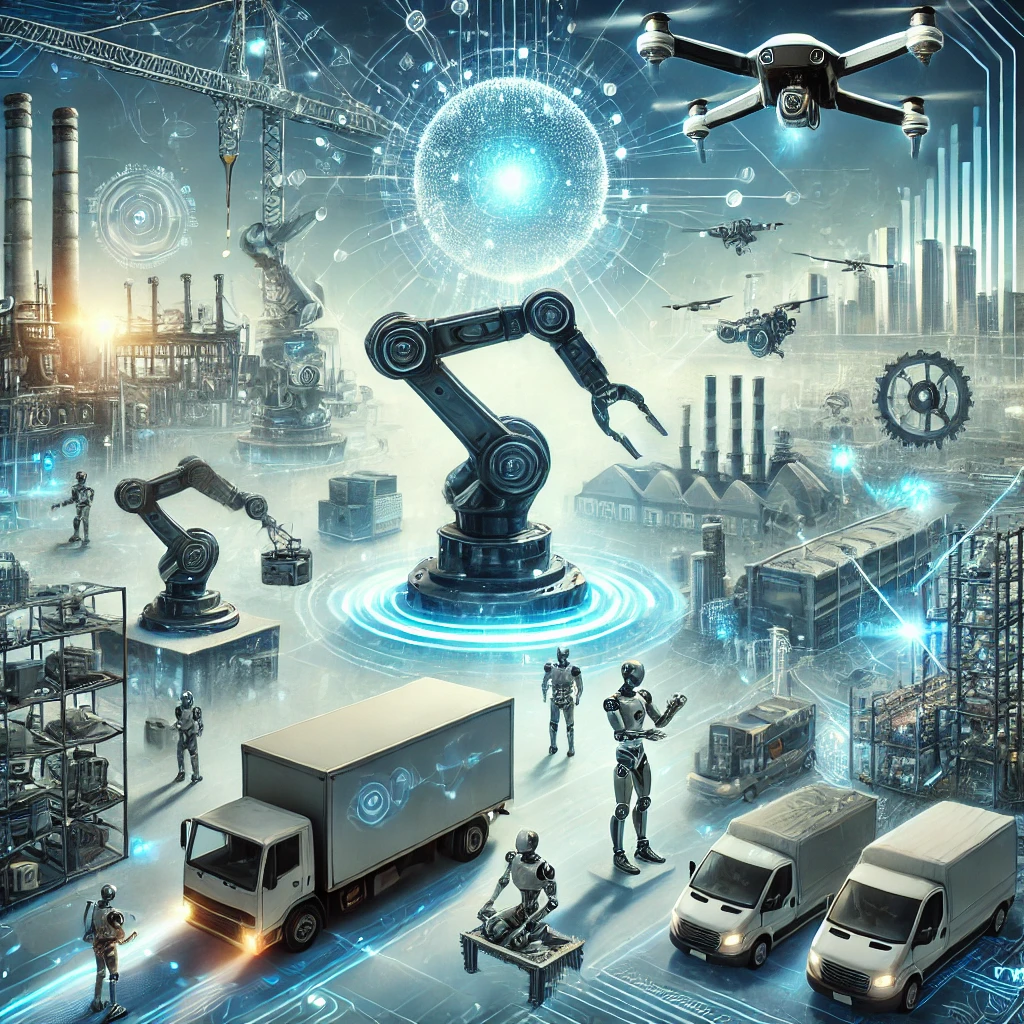Robots at Work: How Automation is Transforming Industries
In recent years, automation and robotics have reshaped industries worldwide. From manufacturing plants to healthcare settings, robots have become essential to business operations. As technology continues to advance, the future of work will increasingly rely on automation. This article explores how robots are transforming industries, improving efficiency, reducing costs, and creating new opportunities, all while reshaping the workforce.
The Rise of Automation
Automation refers to the use of technology to perform tasks that would otherwise require human labor. With advancements in robotics, AI, and machine learning, robots are no longer limited to repetitive tasks on assembly lines. They now perform complex operations, including precision surgeries and warehouse management, becoming indispensable in various industries.
Automation in Manufacturing
Manufacturing is a leading industry in adopting automation. Modern industrial robots handle intricate assembly tasks, work collaboratively with humans, and adapt to real-time changes. These robots enhance productivity, operate 24/7 without fatigue, and ensure precision, especially in sectors like automotive manufacturing.
Robots also perform dangerous tasks involving hazardous materials or extreme conditions, improving workplace safety by minimizing accidents.
Robotics in Healthcare
Robots have significantly impacted healthcare. Robotic-assisted surgeries offer precise operations with minimal invasiveness, resulting in faster recovery times. Service robots assist healthcare staff by delivering medications and supplies, allowing medical professionals to focus on patient care.
In rehabilitation, robotic exoskeletons help patients regain mobility through movement therapy. As technology evolves, the potential for robots to enhance healthcare continues to grow.
Automation in Agriculture
With the need to feed a growing global population, agriculture is adopting robots to improve efficiency. Robots monitor crops, detect diseases, and determine optimal harvesting times. Robotic milking machines reduce labor costs and increase productivity by automating dairy operations.
Retail and Warehouse Automation
Automation is transforming retail and logistics. Companies like Amazon use robots to streamline warehouse operations, picking and sorting products faster than humans. Self-checkout systems in retail stores enable customers to pay without assistance, and cashier-less systems are also emerging.
The Impact of Automation on Jobs
While automation offers numerous benefits, it raises concerns about job displacement. Many worry that robots will replace human workers in repetitive roles. However, automation often complements human labor, freeing workers to focus on more complex and creative tasks.
Automation also creates new jobs, particularly in robotics maintenance, AI development, and data analysis. Training programs are essential to help workers adapt and develop new skills to thrive in an automated workforce.
The Future of Automation
Emerging technologies like AI and machine learning will further enhance automation, allowing robots to take on more sophisticated tasks. Construction is beginning to see changes with the use of drones for site surveys and 3D printing for building structures. Autonomous vehicles also have the potential to revolutionize transportation, logistics, and personal travel.
Conclusion
Automation and robotics are transforming industries at a rapid pace. While concerns about job loss are valid, the overall impact of automation has been positive, improving efficiency, safety, and productivity across sectors.
As technology continues to evolve, robots will play a greater role in the workplace, creating new opportunities and challenges. By embracing these changes, industries and workers can harness the power of automation to enhance lives and reshape industries for the better.









Jai shree Ram
Good